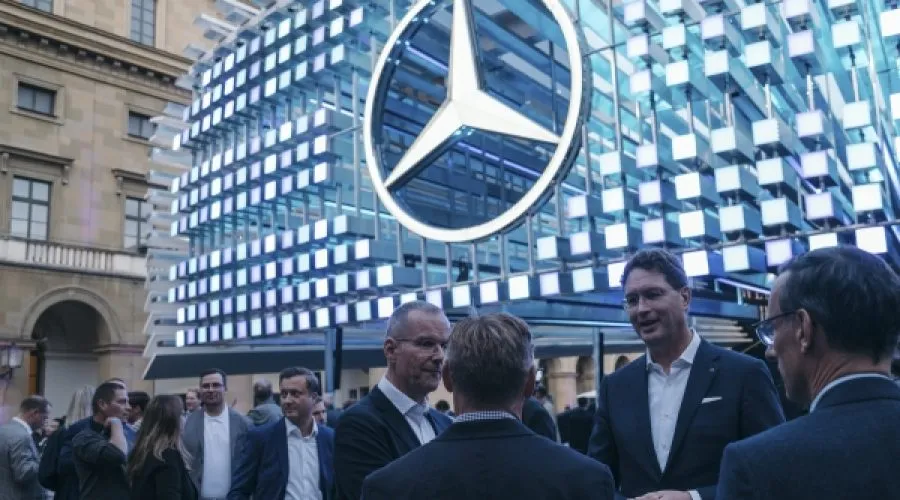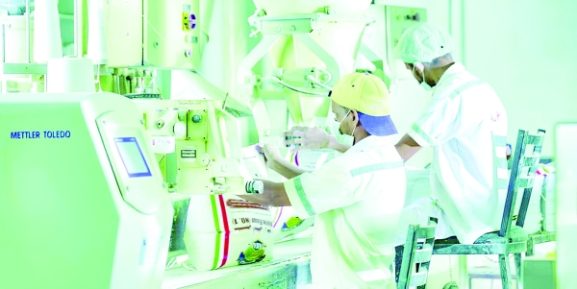عودة شركات صناعة السيارات الألمانية وسط المنافسة الصينية: ما يعنيه ذلك للمستثمرين ورواد الأعمال في قطاع السيارات العالمي
ميونيخ - تستغل شركات صناعة السيارات الألمانية ميزة وجودها على أرضها في أكبر معرض للسيارات في أوروبا هذا الأسبوع للكشف عن نماذج جديدة تهدف إلى التنافس مع الشركات المصنعة الصينية وجذب المستهلكين الأميركيين، على الرغم من التكاليف الإضافية الناجمة عن الحرب التجارية لإدارة ترامب.
في معرض IAA Mobility الذي يقام كل عامين في ميونيخ، قدمت شركات BMW وMercedes-Benz وVolkswagen أحدث سياراتها الكهربائية بحماس وثقة متجددين، وهو تغيير ملحوظ عن السنوات الأخيرة.
يأتي هذا التفاؤل في أعقاب فترة صعبة، حققت خلالها الشركات الصينية الناشئة تقدمًا ملحوظًا في قطاع السيارات الكهربائية، من خلال تطوير وتوسيع نطاق التقنيات الكهربائية والهجينة بسرعة أكبر من منافسيها الأوروبيين. كما واجه المصنعون الألمان انتكاسات مالية كبيرة بعد فرض الولايات المتحدة رسومًا جمركية بقيمة 27.5% على شركات صناعة السيارات الأوروبية في أبريل، على الرغم من أن هذه الرسوم خُفِّضت منذ ذلك الحين إلى 15%، ولكنها لم تُطبَّق بعد.
وبعد استثمار مئات المليارات في التكنولوجيا والبرمجيات الجديدة، تعرض شركات صناعة السيارات الألمانية الآن سيارات كهربائية تتميز بسرعات شحن تنافسية، ومدى قيادة ممتد، وأنظمة ترفيه متقدمة تركز على المستخدم.
أعلن الرئيس التنفيذي لشركة فولكس فاجن أوليفر بلوم: "نحن نتحرك في اتجاه الهجوم"، في حين وصف الرئيس التنفيذي لشركة مرسيدس بنز أولا كالينيوس "روح التفاؤل" السائدة في صناعة السيارات الألمانية، التي "تستثمر بشكل غير مسبوق، مع النظر إلى المستقبل".
ولكن هذا التقدم يأتي في ظل إعادة هيكلة كبيرة، مع فقدان أكثر من 50 ألف وظيفة في العام الماضي مع قيام الشركات بتبسيط عملياتها للتنافس بشكل أفضل مع المنافسين الصينيين.
تظل أسعار السيارات الكهربائية الصينية أكثر تنافسية على الرغم من الرسوم الجمركية التي يفرضها الاتحاد الأوروبي، مما يسمح للعلامات التجارية الصينية بمضاعفة حصتها في السوق الأوروبية خلال العام الماضي.
أعلنت شركة BYD، الرائدة عالميًا في مبيعات السيارات الكهربائية، عن التزامها بأوروبا بالكشف عن أول سيارة ستيشن واجن خاصة بها في المنطقة، وهي نسخة هجينة قابلة للشحن من طراز Seal الشهير، وسيتم تصنيعها في المجر. وقدمت شركة Leapmotor، وهي شركة ناشئة صينية أخرى تتعاون مع Stellantis، سيارة هاتشباك جديدة تستهدف المشترين الشباب. أما Xpeng، فقد طرحت سيارتها Next P7 المدعومة بالذكاء الاصطناعي، وأعلنت عن خطط لإنشاء مركز بحث وتطوير في ميونيخ.
قبل عامين، كانت هذه التكنولوجيا المتقدمة حكرًا على شركات صناعة السيارات الصينية. أما الآن، فتُركز الطرازات الألمانية على الذكاء الاصطناعي، والبرمجيات، وعمر البطارية الأطول، والشحن السريع، وميزات التعرف على السائق الشخصية التي تُمكّن من ضبط الإضاءة، ولوحات القيادة، ووسائل الترفيه.
وفقًا لشركة JATO Dynamics، بلغت مبيعات السيارات الصينية 5.91 تريليون دولار أمريكي من إجمالي مبيعات السيارات في أوروبا خلال شهر مايو، بزيادة عن 2.91 تريليون دولار أمريكي في العام السابق. في الوقت نفسه، لا تزال فولكس فاجن ورينو وستيلانتس - التي تنتج فيات وبيجو وجيب في أوروبا - الأكثر مبيعًا، مما يدل على ولاء قوي لعلامتها التجارية.
تستلهم بي إم دبليو ومرسيدس وفولكس فاجن من تراثها العريق في التصميم والتكنولوجيا. تجمع سيارة بي إم دبليو الرياضية متعددة الاستخدامات الكهربائية بالكامل من فئة Neue Klasse iX3 بين عناصر تصميم مستوحاة من ستينيات القرن الماضي وميزات عصرية مثل لوحة قيادة بانورامية وكفاءة بطارية ليثيوم أيون وأنظمة حوسبة متقدمة. توفر iX3، التي ستُطلق العام المقبل، مدى يصل إلى 497 ميلاً، ويمكنها إضافة مدى يصل إلى 229 ميلاً في غضون 10 دقائق فقط من الشحن.
تتميز سيارة مرسيدس GLC الكهربائية بالكامل بشبك أمامي مضاء يُذكرنا بمبرد مايباخ الأصلي. ومن المقرر إطلاقها العام المقبل، توفر بطاريتها الليثيوم أيون مدى يصل إلى 443 ميلاً، ويمكنها استعادة 25% من شحنها في غضون 10 دقائق.
وتتضمن اللمسات المبتكرة وصلة فولكس فاجن iX3 الأوتوماتيكية، والتي تمتد أو تنكمش بضغطة زر، وحجرة التخزين الأمامية لسيارة مرسيدس GLC، والتي يمكن الوصول إليها بالضغط على نجمة غطاء المحرك الشهيرة، وتتسع لحقيبتين محمولتين.
كما تُعيد فولكس فاجن إحياء تسمية سياراتها التقليدية من خلال سيارة iD Polo الكهربائية، وهي سيارة صغيرة من المقرر إنتاجها في أوائل العام المقبل، ويقل سعرها عن 25 ألف يورو (ما يعادل $29,000 يورو تقريبًا).
تواجه شركة فولكس فاجن تحديات ناجمة عن الخسائر في الصين والتكلفة التي تقدر بـ "عدة مليارات يورو" بسبب الرسوم الجمركية الأمريكية على السيارات الأوروبية، والتي تؤثر على العلامات التجارية مثل أودي وبورشه، والتي يتم استيرادها إلى الولايات المتحدة.
تدرس الشركة، التي توظف 5500 عامل في مصنعها في تشاتانوغا بولاية تينيسي، المزيد من الاستثمارات واسعة النطاق في الولايات المتحدة، رهنًا بالمفاوضات مع إدارة ترامب. وصرح بلوم قائلاً: "لا نتوقع تخفيض الرسوم الجمركية على فولكس فاجن، ولكن يجب على الولايات المتحدة تقديم مساهمة قبل أن نجري مثل هذه الاستثمارات"، دون ذكر مزيد من التفاصيل.
ظهرت هذه المقالة أصلا في صحيفة نيويورك تايمز.
تحليل خاص من عمانت | تصفح سوق عُمان
إن عودة شركات صناعة السيارات الألمانية إلى قطاع المركبات الكهربائية، والتي تميزت باستثمارات ضخمة في التكنولوجيا التي تعتمد على الذكاء الاصطناعي ونماذج المركبات الكهربائية التنافسية، تشير إلى سباق عالمي متجدد في مجال الابتكار في مجال السياراتبالنسبة للشركات العمانية، هذا يؤكد أهمية التنويع في قطاعات التكنولوجيا المتقدمة والشراكات الاستراتيجية للاستفادة من سلاسل توريد السيارات الكهربائية المتطورة. ينبغي على المستثمرين الأذكياء النظر في المشاركة المبكرة في أسواق وتقنيات السيارات الكهربائية الناشئةمع الحفاظ على الحذر بشأن التوترات التجارية وتحولات السوق المتأثرة بالعوامل الجيوسياسية.



